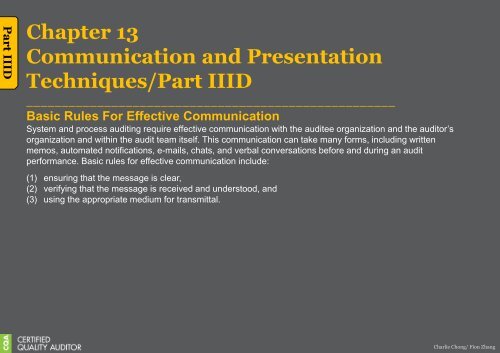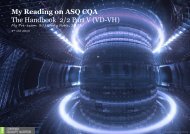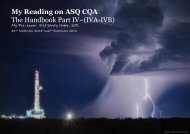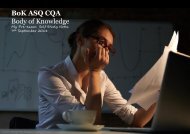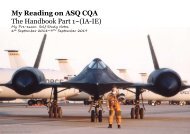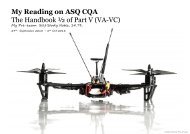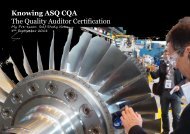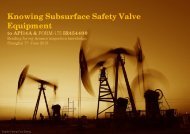My Reading on ASQ CQA HB Part III
You also want an ePaper? Increase the reach of your titles
YUMPU automatically turns print PDFs into web optimized ePapers that Google loves.
<strong>Part</strong> <strong>III</strong>A<br />
ISO 19011’s Views <strong>on</strong> Competency.<br />
ISO 19011 does not list formal educati<strong>on</strong>, training, or experience competency needs. For example, instead of<br />
needed knowledge and skills such as basic reading, writing, and oral communicati<strong>on</strong>, auditors should be able<br />
to communicate effectively, orally and in writing (either pers<strong>on</strong>ally or through the use of interpreters and<br />
translators).<br />
Basic Competency.<br />
Competencies for first-, sec<strong>on</strong>d-, and third- party auditors may be different. Competencies will change for<br />
industry and system sectors. General auditor competencies may be based <strong>on</strong> job performance.<br />
Key auditing competencies include:<br />
• Being able to implement an audit<br />
• Maintaining communicati<strong>on</strong><br />
• Collecting and verifying audit evidence<br />
• Composing findings and c<strong>on</strong>clusi<strong>on</strong>s<br />
For lead auditors, there is added emphasis <strong>on</strong> leadership, formal communicati<strong>on</strong>, and skills needed to manage<br />
the audit process.<br />
Charlie Ch<strong>on</strong>g/ Fi<strong>on</strong> Zhang


